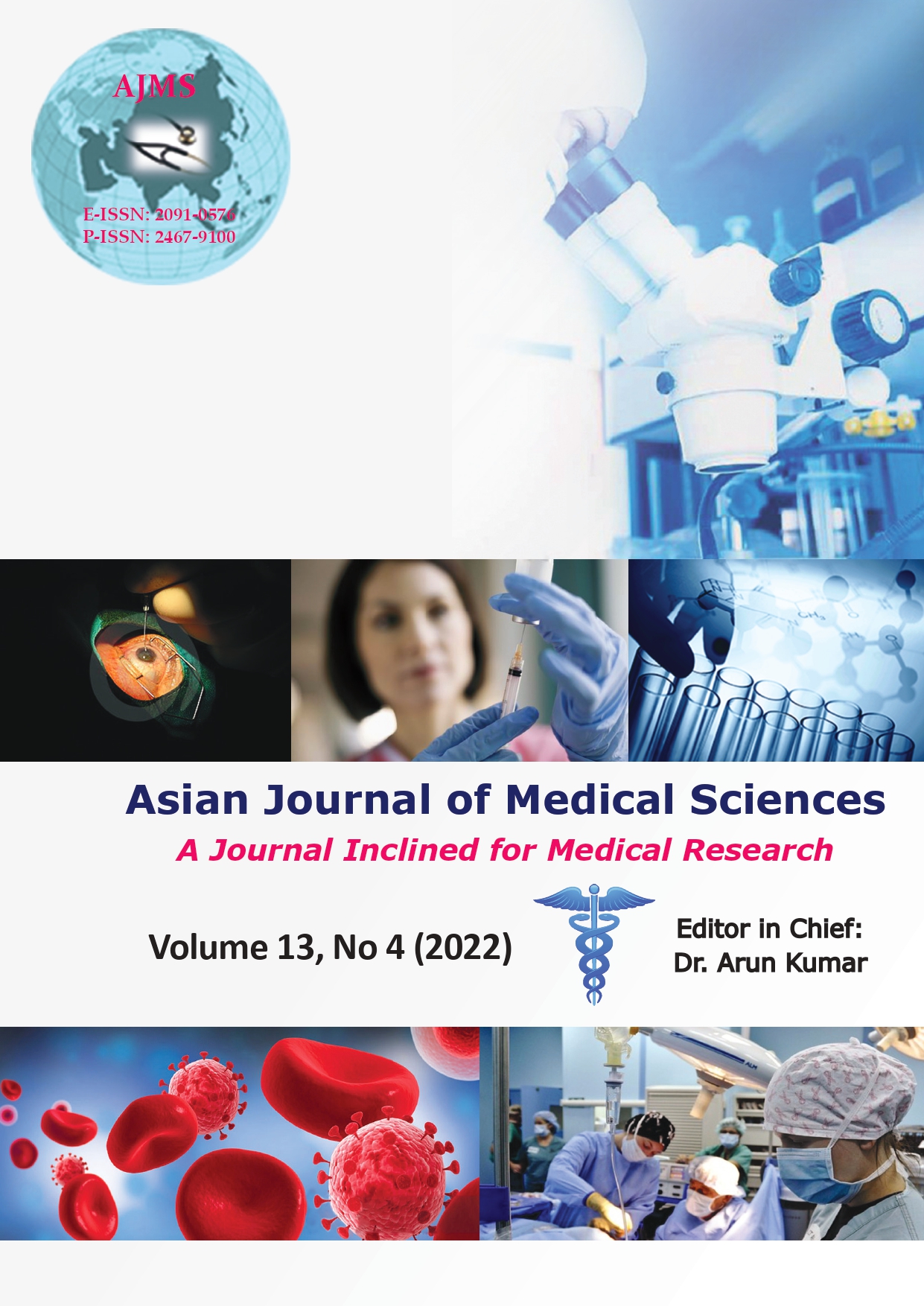An institutional-based observational study of the effect of iodinated contrast media used in computed tomography scan on liver function tests in a tertiary care hospital
Keywords:
Alkaline phosphatase, Bilirubin, Contrast-enhanced computed tomography, Contrast media, Liver function testsAbstract
Background: Iodine-based contrast media are used to obtain contrast-enhanced computed tomography (CECT) images for better visualization of anatomical structures and improved diagnostic accuracy. These contrast agents are water soluble and are primarily eliminated through renal route. Studies on the acute effects of these agents on the hepatic function are very few in literature. This study was conducted to assess the change of serum parameters of hepatic function within 1 week of administration of the contrast agents.
Aims and Objectives: The aim of the study was to study the acute effect of iodinated contrast media on liver function test.
Materials and Methods: Patients attending radiology department for CECT, pre-advised by physicians as part of the treatment protocol of their specific indication were invited to participate in the study. Patients of either gender with normal kidney function test were included in the study. The study was a single-arm, observational prospective study designed to evaluate the change in liver function tests in the study participants after administration of iodinated contrast agent for CECT. All patients who participated in the study provided written informed consent (n=50). Blood sample was obtained for hepatic function tests before administration of the contrast agent and after 3–7 days of CECT. The parameters observed were serum glutamic-oxaloacetic transaminase, serum glutamic-pyruvic transaminase, alkaline phosphatase (ALP), serum bilirubin-total bilirubin, direct bilirubin, indirect bilirubin, serum protein-total protein, serum albumin, and serum globulin. Paired t-test was used to find out the significant differences between the respective blood parameters before and after the CECT. P<0.05 was considered statistically significant.
Results: The mean hepatic serum parameters before and after the CECT were found to be in the normal range. There was a nearly statistically significant (P=0.052) but clinically insignificant increase in the mean value of ALP after the CECT (3.020±10.739, 95% confidence interval: −0.032–6.072). Similarly, there was a paradoxical decrease in indirect bilirubin after CECT (P=0.002) which, however, was clinically insignificant (−0.0280±0.0607, 95% confidence interval: −0.0453–−0.0107). There was no statistically or clinically significant difference between the before and after test values in all other parameters.
Conclusion: Iodinated contrast agents used in CECT do not have any clinically significant effects on change in serum hepatic functions within 1 week of administration of the contrast agents. The mild elevation in alkaline phosphatase may be an indication of acute cholestatic effect of the contrast agents on the hepatic parenchyma. Further studies are warranted to decipher the complete and true picture of these agents on hepatic function.
Downloads
Downloads
Published
How to Cite
Issue
Section
License
Copyright (c) 2022 Asian Journal of Medical Sciences

This work is licensed under a Creative Commons Attribution-NonCommercial 4.0 International License.
Authors who publish with this journal agree to the following terms:
- The journal holds copyright and publishes the work under a Creative Commons CC-BY-NC license that permits use, distribution and reprduction in any medium, provided the original work is properly cited and is not used for commercial purposes. The journal should be recognised as the original publisher of this work.
- Authors are able to enter into separate, additional contractual arrangements for the non-exclusive distribution of the journal's published version of the work (e.g., post it to an institutional repository or publish it in a book), with an acknowledgement of its initial publication in this journal.
- Authors are permitted and encouraged to post their work online (e.g., in institutional repositories or on their website) prior to and during the submission process, as it can lead to productive exchanges, as well as earlier and greater citation of published work (See The Effect of Open Access).




